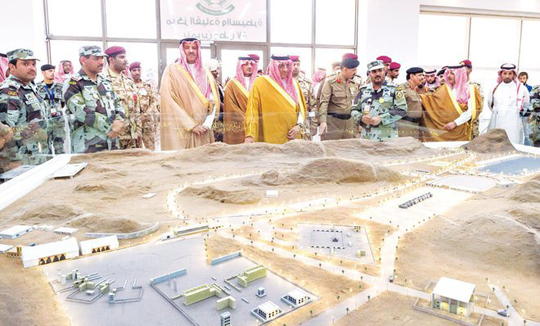Madinah, Mar 9: Crown Prince Mohammed bin Naif on Wednesday oversaw the closing session of the second joint tactical training exercises at the Mohammed bin Naif Center for Special Operations and Developed Applications.

He was briefed on the training area at the center, which includes administrative support, operations and the Command and Control Center (CCC).
Prince Mohammed was also briefed by Lt. Col. Ibrahim bin Abdullah Al-Qahtani about the CCC’s work mechanism and its role in ensuring security integration among sectors, and coordination between participating and supporting sectors.
Supervisor of the training exercises, Gen. Said bin Abdullah Al-Qahtani, said serving guests at the holy places is an honor the forces are proud of, and they are ready to sacrifice their lives to that end.
“Our forces live up to that responsibility, and to the honor shown by our supreme commander, King Salman bin Abdulaziz, knowing that history will record their heroism and sacrifices in the face of terrorism and criminal gangs,” he said.
Director of Public Security Gen. Osman bin Nasir Al-Muhraj thanked Prince Mohammed for patronizing the event.
Al-Muhraj said the exercises implemented by security forces from different sectors showed their high level of professionalism.
“The applications are concrete evidence of the distinguished level of training reached by the Kingdom’s security personnel in dealing with different incidents and in working to support justice, deter aggression and protect the homeland, its holy sites, citizens and residents,” he said.
The crown prince and attendees witnessed applications and operations carried out by participating forces, including armed attacks on a residential complex, petrochemical facility and diplomatic quarter, as well as prison riots and a raid on a farm taken over by terrorists in a border area.





Comments
Add new comment